Table of Contents
The Law, given in the first 5 books of the Old Testament, are the foundation rules leading up to the coming ultimate sacrifice that would make people perfect enough to draw near to God. The repeat of the sacrifices in the Law indicates that those sacrifices are not sufficient, but the ultimate sacrifice of Jesus Christ, the Perfect One, was the one payment that we can claim for our redemption.
God’s own words, in the Old Testament Scriptures, declare His intention to replace the old covenant with a new covenant. Jesus fulfills all of these prophecies, and all of the symbolism found in the system of priests, the tabernacle, and animal sacrifices. Hebrews chapter 10 tells us that knowing Jesus Christ is God’s remedy for our sins, we should be encouraged to hold on to our faith in the face of persecution. However, that same confidence means dire spiritual consequences for those who know Christ’s salvation, but choose to act in defiance of His will.
Hebrews 10:1-4 The Once for all Sacrifice of Jesus.
Jewish people have been raised to read the Torah, pray the Torah, go to the Temple, and at the Temple offer sacrifices. In addition, they would weekly celebrate the Sabbath, and seven times a year they would celebrate the prescribed feasts like Passover and Pentecost (etc.), and yearly they would celebrate the Day of Atonement (today referred to as Yom Kippur).
Sadly, most of the Jews, century after century had failed to see the true significance of the Old Testament system.
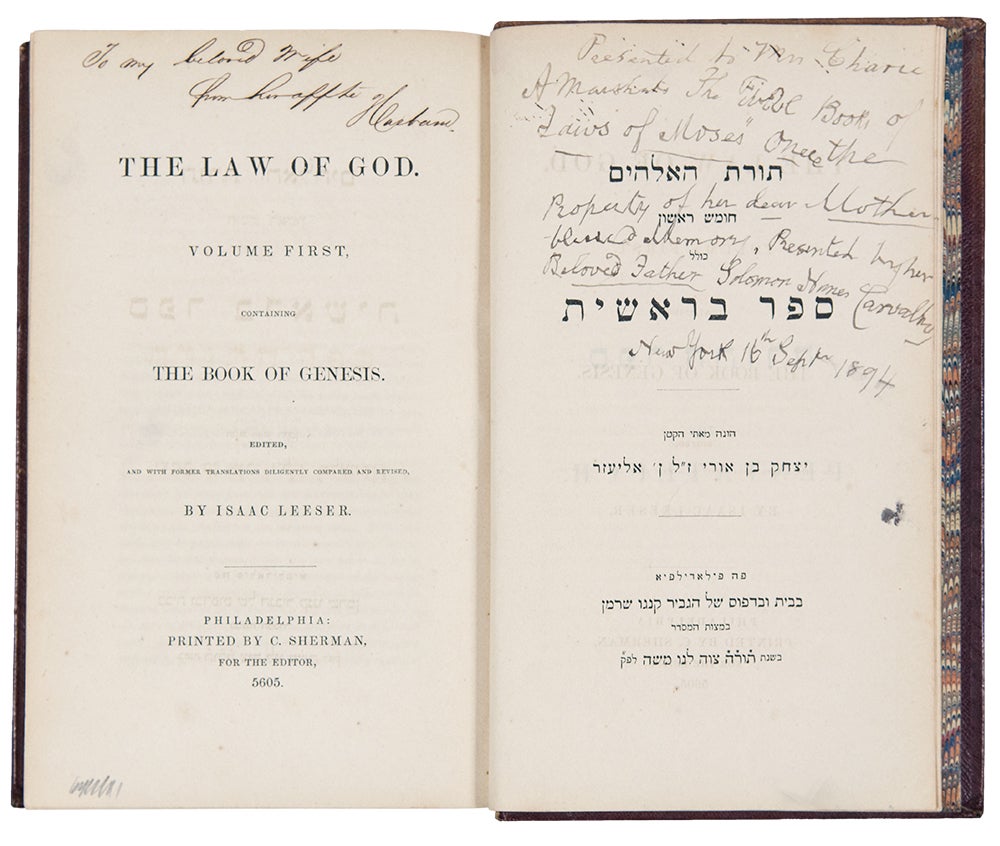
“The law” means strictly the law of Moses (in the first five books of the Old Testament), but here, in chapter 10, it stands for the whole Old Testament, with particular reference to the sacrificial system.
Charles Haddon Spurgeon, the most widely read and often quoted preacher in history, says the law here “refers to the old ceremonial law, under which the Jews lived so long. They always had to go on, year after year, offering the same kind of sacrifices, because the work of atonement was never done perfectly. Men were not cleansed or saved by it, so the process had to be constantly repeated.” 1
Hebrews 10:1-4 says that the law showed sin but did not remove sin. The law acted as a reminder of sins year by year. Christ’s sacrifice is superior because His sacrifice removed sin. The sacrifices under the law pointed to the coming of the perfect sacrifice—Christ.
William Barclay said, in his Daily Study Bible, “To the writer to the Hebrews the whole business of sacrifice was only a pale copy of what real worship ought to be. The business of religion was to bring a man into a close relationship with God and that is what these sacrifices could never do. The best that they could do was to give him a distant and spasmodic contact with God. 2
In Hebrews 9:8–10, the writer of Hebrews explained how the old covenant was meant as a symbol of the new covenant. The physical qualities of the tabernacle were meant to explain both the weaknesses of the old covenant and the superior nature of the new covenant. In particular, the writer pointed out how the blood of animals was an imperfect sacrifice. Not only did animal sacrifice need to be offered over and over, it did not have the power to actually “cleanse” man from sin, only to “cover” that sin temporarily.
Note that chapter 9, talks about the sacrifice of the Lord Jesus Christ, and about the objective benefits of the Cross of Christ. But, chapter 10, verse 1 through verse 18, emphasizes the subjective effects of the work of the Lord Jesus Christ.
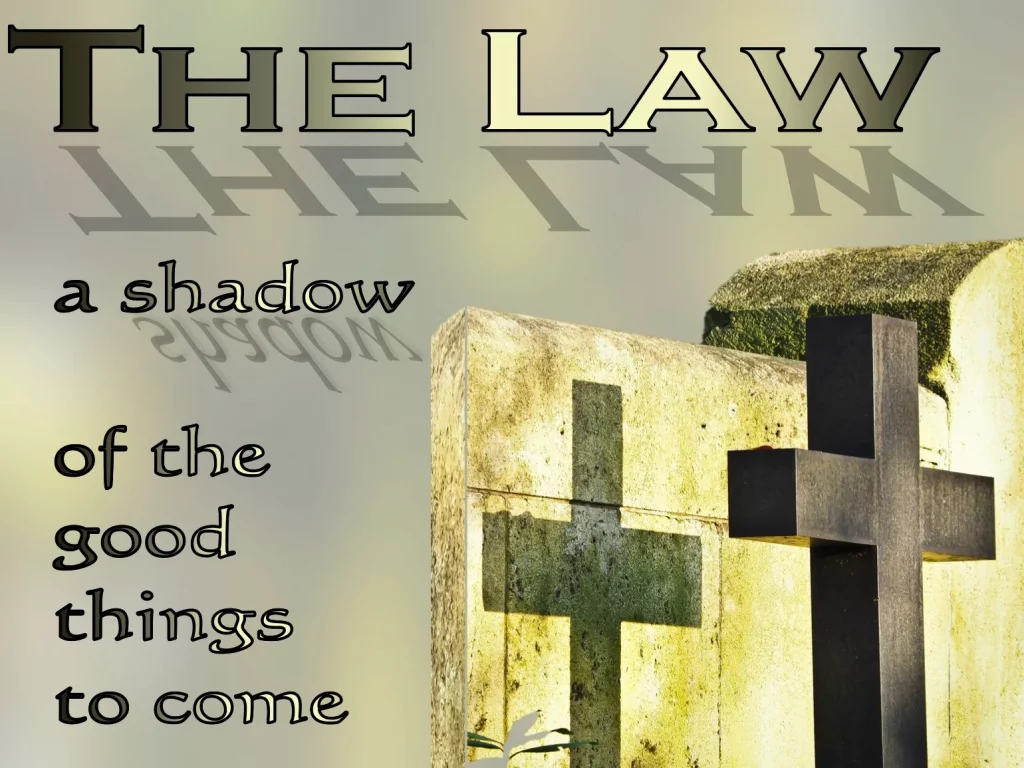
The law had “the shadow of good things to come,” but in Christ, we have “the form of things itself.”
The old covenant was not incorrect, or useless. However, its true purpose was not eternal salvation. The real purpose of the old covenant was to point people towards Jesus Christ, as the fulfillment of God’s ultimate plan.
Jews who had now heard the Gospel and were attracted by it and beginning to respond to it. At the same time, they were feeling intense pressure to step back into the shadows of the old system.
But chapter 10, is an eloquent plea for them to take the final step of faith out of the shadows and into the light of Jesus Christ Who Himself declared “I am the Light of the world; he who follows Me will not walk in the darkness, but will have the Light of life” (John 8:12).
In chapter 10 the insufficiency of the Mosaic sacrifices is stated first of all. The idea that the Old Covenant (the law) is a mere shadow of the substance that is the New Covenant is also communicated in Colossians 2:16, 17, and Hebrews 8:5.
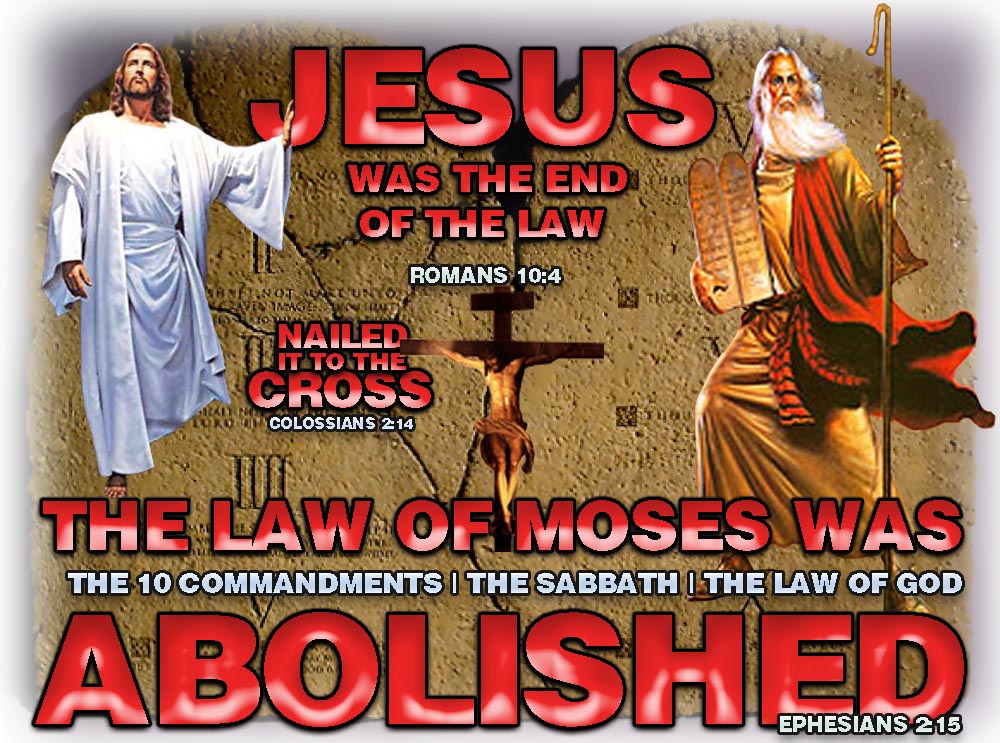
Shadow means that the law communicated the outline and the figure of the fulfillment in Jesus, but was not the very image of the things.
Shadow isn’t a bad thing. Sometimes a shadow can tell you a lot. But the shadow is not the substance. The Old Covenant and its law were not themselves bad or evil, they are only incomplete and insufficient to bring total cleansing from sin, and to save. The shadow can never make those who approach perfect.
The phrase “made perfect,” as used here, is not a reference to absolute sinlessness. In this context, “perfection” carries the same meaning it usually does in the New Testament, which is that of completion and maturity. The sacrifices of the old covenant could not fully cleanse man to stand before God. The new covenant, however, can change the conscience of man and totally remove sin, allowing us to be “perfected”—matured and completed—in the eyes of God.
The phrase “made perfect,” as used here, is not a reference to absolute sinlessness. In this context, “perfection” carries the same meaning it usually does in the New Testament, which is that of completion and maturity. The sacrifices of the old covenant could not fully cleanse man to stand before God. The new covenant, however, can change the conscience of man and totally remove sin, allowing us to be “perfected”—matured and completed—in the eyes of God.
The point in verses 1-4 is that the annual repetition of sacrifices in the old order indicated their inability to actually remove sins. Paul uses a logical deduction argument. Had they truly cleansed the conscience, those offerings would not need to repeat them; they would have seen themselves as cleansed from sin’s defilement forever. But these sacrifices could not remove sin because they were based only on the death of animals.
Paul has been showing them over and over, there was really nothing for them to go back to. He is arguing why go back to a shadow with the Substance has come. (Colossians 2:17)
Since Christ had rendered the Law obsolete by His atoning death, God was not pleased by the continual offering of sacrifices (Hebrews 10:8). The priests may stand and offer their sacrifices day after day, but the fact has already been established that those sacrifices can never take away sins (Hebrews 10:11).
The writer of the Hebrews repeats a familiar argument: the repetition of sacrifice shows its inherent weakness. If animal sacrifice had “fixed” the sin problem, then they could have ceased to be offered.
Every repeated sacrifice was a reminder of sins. It brought the consciousness of sins to the people again and again. But the work of Jesus on the cross takes away sin!
Since atonement for sin could never be achieved through the bodies of sacrificial animals, God prepared a body for His Son. It was in that body that Jesus offered Himself on the Cross as the final sacrifice. The Hebrews, and all believers before and since, were the beneficiaries of Jesus’ death. But that good thing, that benefit could only be grasped by grace through faith.
Click here to Scroll To Top of the Page“For” –
Notice the first word of chapter 10, “For.” This makes the connection, carrying on from verse 26 of chapter 9, “He then would have had to suffer often since the foundation of the world, but now once at the end of the ages, He has appeared to put away sin by the sacrifice of Himself, for” in 10:1-4, “the law, having a shadow of the good things to come, and not the very image of the things, can never with these same sacrifices, which they offer continually year by year, make those who approach perfect.”
In other words, the Old Testament presents us with an in-efficacious system of salvation. But the stress in Hebrews chapter 10 is on the benefits that are, and in, chapter 9. The stress is on the objective benefits of what Christ has done.
Therefore no one is to act as your judge regarding food or drink or in respect to a festival or a new moon or a Sabbath day– things which are a mere shadow of what is to come; but the substance belongs to Christ.
The law had “the shadow of good things to come,” but in Christ, we have “the form of things itself.”
______________Affiliate link – SHOP: _______________
_This ad is for my favorite version of The Bible _
_____but click on it to go to the whole store______

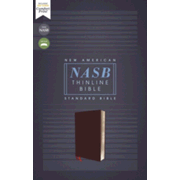
NASB Comfort Print Thinline Bible, Red Letter Edition–bonded leather, burgundy (click here)
By Zondervan
The beloved 1995 Edition of the New American Standard Bible is now easier to read with Zondervan’s exclusive NASB Comfort Print® typeface. This edition of the NASB Thinline Bibles is available in a variety of sophisticated designs in a portable, easy-to-read format.
- The full text of the New American Standard Bible, 1995 Edition
- Exquisite, durable covers
- Less than one inch thick
- Double-column format
- Presentation page
- Two satin ribbon markers
- Words of Christ in red
- Exclusive Zondervan NASB Comfort Print 9 point type
Features:
____________________________________________
Consider the Daily Bread email message sent on 2/4/2009 and 10/11/2023 which says,
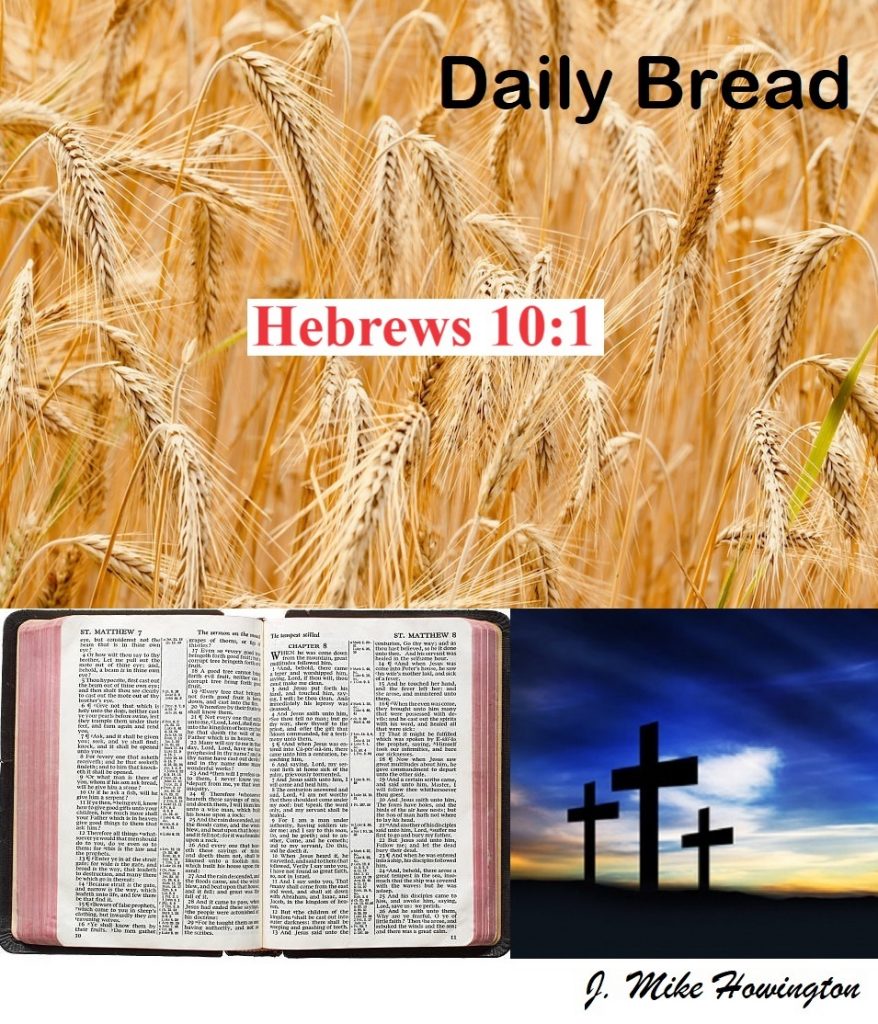
Hebrews 10:1 – For the Law, since it has only a shadow of the good things to come and not the very form of things, can never, by the same sacrifices which they offer continually year by year, make perfect those who draw near. (NASB)
The Law of Moses, the first five books of the Old Testament, was given to instruct the people on how they must build a community and live closely together. They also explain a system of redemption whereby they can be cleansed from their sins. The Laws are the foundation rules leading up to the coming ultimate sacrifice that would make people perfect enough to draw near to God. The repeat of the sacrifices indicates that those sacrifices were not sufficient, but the ultimate sacrifice of Jesus Christ, the Perfect One, was the one payment that we can claim for our redemption.
You Can Receive The Daily Bread, for FREE.
To receive the Daily Bread email messages, free on Mon., Wed., and Fri., in your email inbox, just fill in the form below or send an email, and ask to be added, to jmikeh@jmhowington.com
Click here to Scroll To Top of the Page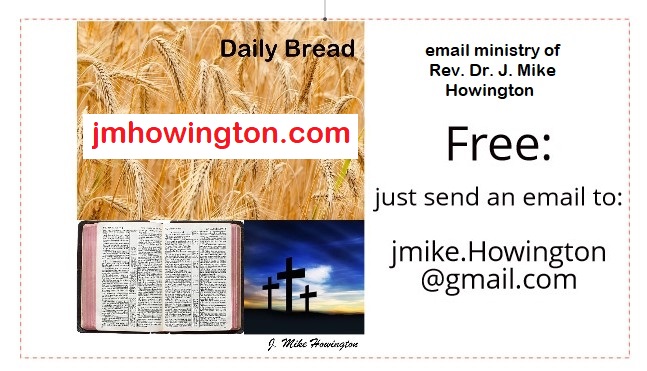
References:
- Charles Haddon Spurgeon, https://www.studylight.org/commentaries/eng/csc/hebrews-10.html
- William Barclay, Daily Study Bible, https://www.studylight.org/commentaries/eng/dsb/hebrews-10.html
